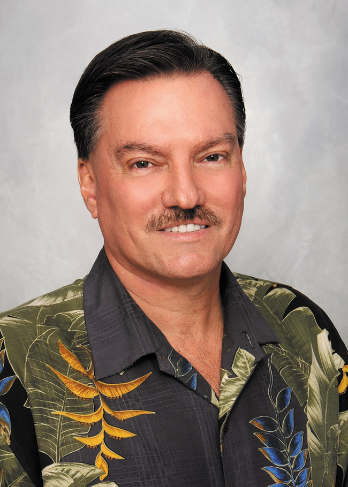Roles Are Growing For Nurses
Art Gladstone, R.N.
CEO, Straub Clinic and Hospital
How long have you been in practice?
I have been practicing as a nurse for 27 years. I am also chief executive officer at Straub Clinic and Hospitals, chief nurse executive with Hawaii Pacific Health and a fellow of the American College of Healthcare Executives.
What made you choose the field of nursing?
The comprehensive aspect of caring for a person’s being attracted me to the field of nursing. I always had an interest in not only the science but also the emotional and psychological features of delivering health care to people.
How big is the nursing community in the state?
The nursing profession is the largest group of licensed professionals in the state at more than 20,000 strong, and there are more than 3 million nurses in the U.S. Nurses are the largest segment of hospital staff.
What are a nurse’s duties in general?
On the whole, nurses have the most contact with patients and family. On a national and statewide level, nurses are the largest segment of providers of patient care in hospitals and deliver most of the long-term care. However, a nurse’s most important duty is ensuring the continuity of care from one hour to the next and from one level of care to the next. That can mean as a patient moves from one level of care to another, or from one health care facility to another or to outpatient care and to home, the continuum of care moves with the patient. Nurses coordinate and deliver the care in homes, in the community, in long-term care facilities and in hospitals.
What other duties do nurses perform that the public might not be aware of?
Nurses are the backbone of all care delivery. We work tirelessly to ensure that each patient and family receives safe, coordinated, quality care. While that may seem simple, the increasing number of people who interact with patients to provide specific aspects of care means that the potential of fragmentation and error has increased dramatically in the last decade.
The combination of scientific knowledge, clinical expertise, and sensitivity to the emotional impacts of care delivery makes a difference in patient outcomes. There is an increasing body of knowledge demonstrating that the professional education of the RN (registered nurse) prevents problems such as infections in hospitals. Nurses’ roles range from direct patient care and case management to establishing nursing practice standards, developing quality assurance procedures and directing complex nursing care systems. Nurses are also leaders and active board members of organizations and companies.
What are some of the areas of specialty in the field of nursing?
There are many specializations in nursing: mental health or psychiatric, medical rehabilitation, certified registered nurse anesthetists, nurse practitioners, obstetrical, pediatric, public health, cardiac, oncologic, medical case management, emergency trauma, medical-surgical, surgical, urologic, home health, geriatric, neonatal, nursing informatics – and that is the short list!
Do nurses mostly practice in a medical center, or are there a variety of other settings where they commonly practice as well?
Nurses practice in a variety of settings: hospitals, nursing homes, medical offices, ambulatory care centers, community health centers, schools, retail clinics and patient homes. They also provide health care in more surprising locations such as camps, schools, homeless shelters, prisons, sporting events and tourist destinations.
What is the difference between an LPN, RN, and APRN? Are they each successively more advanced?
The difference is the level of training, licensure and education. A licensed practical nurse (LPN) provides basic and routine care consistent with their education under supervision.
A registered nurse (RN) may perform physical exams and health histories, provide health counseling and education, administer medications and provide wound care. RNs also coordinate care, direct and supervise care delivered by other healthcare personnel like LPNs and nurses aides. They conduct research to help improve practice and patient outcomes.
The advanced practice registered nurse (APRN) has a master’s degree and/or Doctorate in Nursing Practice (DNP) and national certification in their area of specialty. They are licensed by the Hawaii
Board of Nursing and have the authority to provide primary care including ordering tests, writing prescriptions and managing treatment.
In Hawaii, the nurse practitioner (APRN) is increasingly visible as a provider of primary care in retail clinics and physician offices. We have a shortage of primary care providers statewide, and the nurse practitioner is well-prepared to meet this need. Also, APRNs work in hospitals with physicians to provide care in emergency rooms, oncology and chronic illness management.
As we transform our care delivery system to one that focuses on the patient and improving health, I believe we will see the emergence of nursing as a major force in care delivery across all settings.
Anything else you would like to add?
In Hawaii, we are very fortunate to have an educated and qualified nursing workforce committed to delivering high quality care and service to patients and their families. Hawaii has one of the most progressive Nurse Practice Acts in the country.
We are leaders in ensuring that well-educated nurses – at whatever level – are able to use all their skills and knowledge to provide great care to patients and communities.
Nurses in our state are very compassionate. My experience is that they really connect with the people that they are caring for. People living in Hawaii tell me it’s like being cared for by your ohana.






